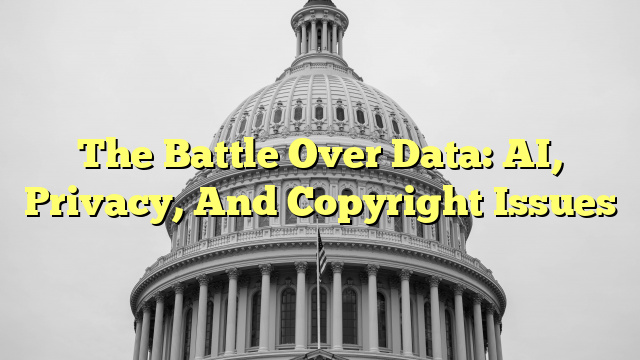Table of Contents
Introduction
With the rise of artificial intelligence (AI) and its increasing involvement in various industries, including art and creative works, the battle over data, privacy, and copyright issues has intensified. This article explores the complex relationship between AI, privacy, and copyright, and delves into the legal challenges faced by AI creators and users.
AI and Copyright
AI has the ability to generate original works, such as paintings, music, and literature. However, the question of who owns the copyright to these AI-generated works remains a contentious issue. While traditionally, copyright is granted to human creators, AI blurs the lines of authorship.
Some argue that AI should be considered the author of its creations, while others believe that the human programmer or user should be granted the copyright. This debate raises important questions about the legal framework surrounding AI-generated content.
AI Art and Copyright Laws
AI-generated art has gained significant attention in recent years. However, the use of copyrighted materials in AI art has led to copyright infringement claims. AI algorithms often rely on existing works to learn and create, which can potentially violate copyright laws.
Artists and creators using AI tools must navigate the legal complexities surrounding fair use and transformative works. While AI can produce unique and original pieces, it is crucial to ensure that the generated content does not infringe upon the rights of others.
Copyright Lawsuits Against OpenAI
OpenAI, a prominent AI research organization, has faced copyright lawsuits over its AI models. These lawsuits claim that OpenAI’s models have been trained on copyrighted materials without proper authorization. The legal battles highlight the challenges AI developers face in ensuring their models comply with copyright laws.
These lawsuits also raise questions about the responsibility of AI developers and the need for clearer guidelines and regulations in the AI industry to prevent copyright infringement.
Conclusion
The battle over data, privacy, and copyright in the age of AI is complex and multifaceted. As AI continues to evolve and play a larger role in creative processes, it is essential for lawmakers, creators, and users to address the legal challenges and establish a framework that protects both the rights of human creators and the potential of AI.

